South Korea’s Green New Deal ‘stunningly ambitious’ for one of region’s top polluters
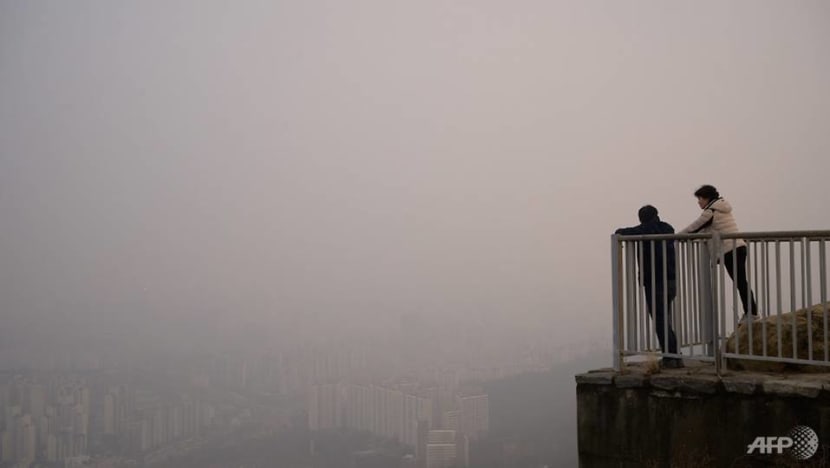
A thick layer of pollution hanging over the Seoul skyline on December 10, 2019. (Photo: AFP/Ed Jones)
BANGKOK: When South Korea’s Democratic Party, under the leadership of President Moon Jae-in, romped to a comprehensive victory in national elections last month, it signalled overwhelming confidence in the incumbent government during a period of crisis.
In effect, it also endorsed Moon’s newly launched climate change policy, which he has dubbed South Korea’s Green New Deal, echoing language used in Europe and the United States for a transformative agenda to shift away from damaging fossil fuels.
It puts the country, which is currently the seventh biggest carbon polluter in the world, on a crash course with a painful, controversial but necessary overhaul of its energy systems.
The action plan that the government announced in March - including a large-scale investment in renewable energy, the phasing out of coal operations and financing, a new carbon tax and a target of zero net emissions by 2050 - is at odds with much of the existing infrastructure and policies.
Achieving these goals for South Korea will be a more challenging task than in many other nations trying to make similar changes to their power production, according to leading regional energy expert, Melissa Brown.
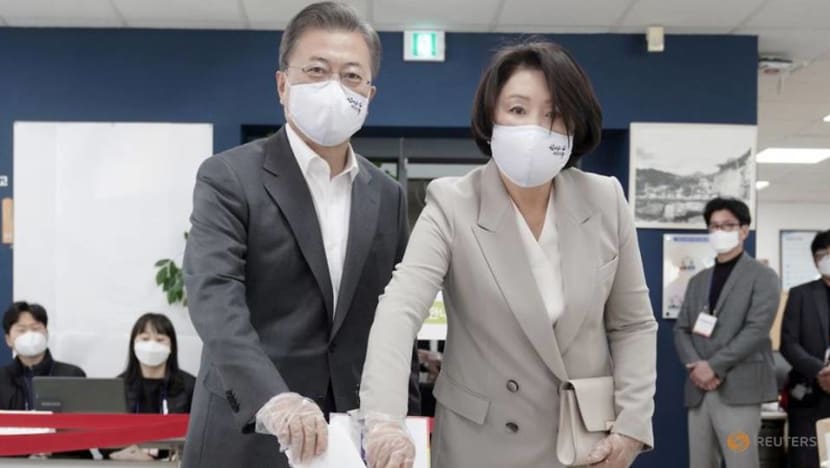
“Generally speaking at a diplomatic level, you have a very comfortable embrace of green themes, green topics and the trappings of deep environmentalism. (But) the reality of the ground normally doesn’t match. It’s been a point of contention in Korea,” said Brown, the director of Energy Finance Studies, Asia at the Institute for Energy Economics and Financial Analysis.
“When we talk about the Green New Deal and trying to redirect Korea, it can seem a stunningly ambitious exercise.”
South Korea relies on coal for about 44 per cent of its power needs presently. The non-nuclear renewable sector, including wind and solar is underdeveloped and accounted for less than 2 per cent of production in 2018.
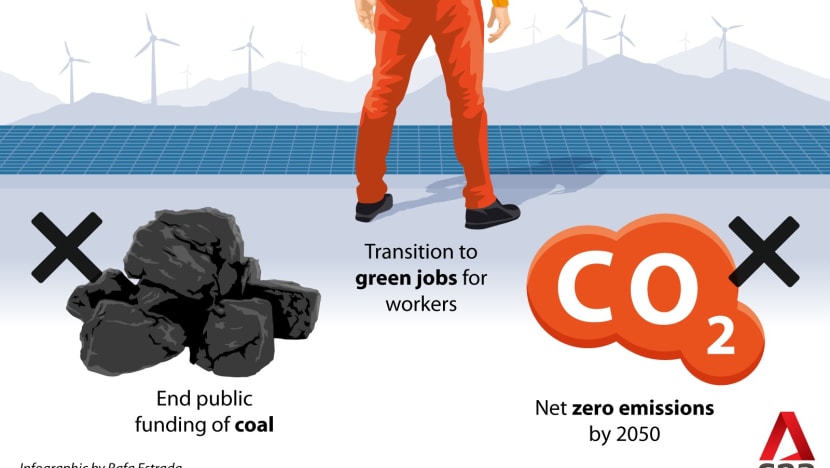
Its present targets under the Paris Agreement are for a 37 per cent reduction in business-as-usual emissions by 2030. It is a pledge considered “highly insufficient” by Climate Action Tracker, an independent consortium that tracks government action on climate.
In addition, the country was the third-highest polluter in the world per capita in 2016, the fourth largest importer of coal and the third biggest public investor in overseas coal plants, including in Indonesia, Bangladesh and Vietnam where a Greenpeace report found alarming rates of emissions, which would be illegal in South Korea itself.
READ: UN chief praises South Korea's simultaneous fight against COVID-19, climate change
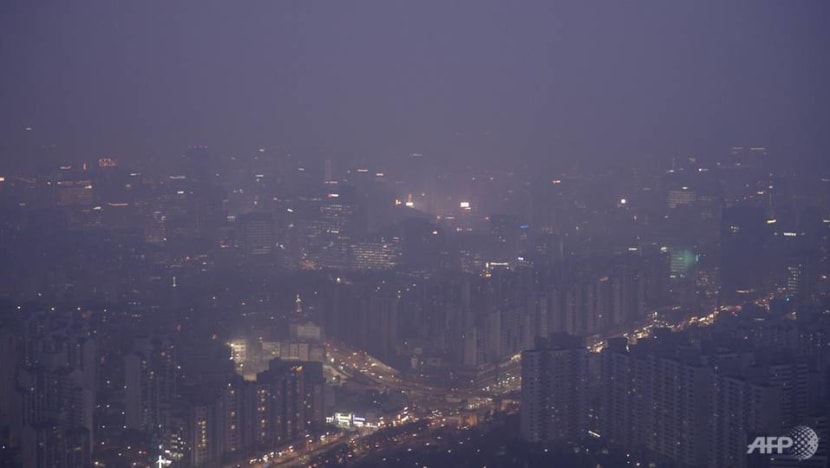
Despite phasing out and fast-tracking the drawdown of some older coal power plants, new operations are still set to come online in years to come.
Brown says South Korea’s powerful state enterprises, notably the Korea Electric Power Corporation (KEPCO), which dominate the domestic energy sector, have failed to take heed of shifting global energy markets and the hastening economic demise of fossil fuel commodities.
“They weren’t looking for change, and as change completely restructured global power markets, now they’re really caught out. They didn’t read the books, they didn’t pay attention and it’s not simply a Korean problem,” she said.
“If you don’t understand or you’re somehow blinded to the realities that are taking place as a result of massive and exciting technology changes because they don’t fit your model, you’re not serving the interests of the Korean people. That’s what they’re coming bang up against.
She added: “Korea has very significant and expensive legacy assets. They will need to be positioned for transition. And I don’t minimise that challenge. Essentially what they’ve done is doubled down on fossil fuel lock-in on new power generating capacity that will not be economic in 10 years time, if not earlier. That is an unconscionable mistake.”
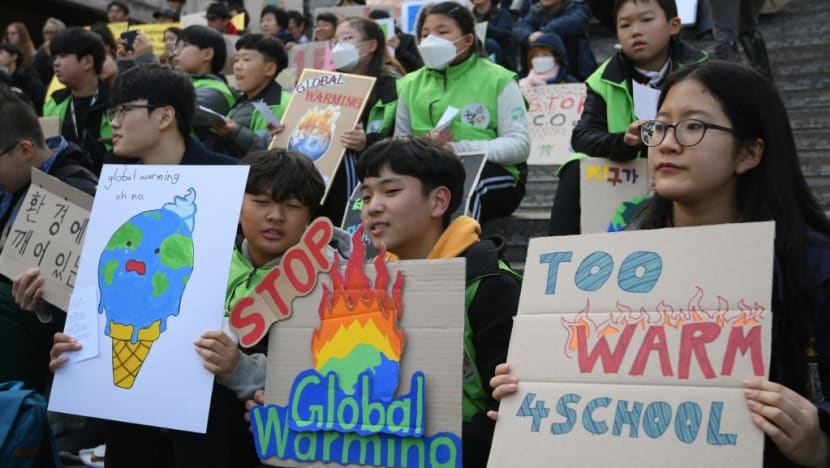
RELIANCE ON COAL NOT NECESSARILY CHEAPER IN LONG RUN
A recent report by Carbon Tracker, an independent financial think tank, highlighted the economic dangers of South Korea’s continued commitment to coal, finding that it had the highest stranded asset risk in the world - infrastructure at risk of being unprofitable or decommissioned early due to market structures.
The report explained that by 2027, it would be cheaper to build new solar production in South Korea than operate its existing coal plants.
Another study by the same group highlighted fears that the South Korean government was set to play a game of “whack-a-mole” by simply shifting coal production into liquefied natural gas instead.
“The coal replacement plan should not shift attention towards a long-term commitment to gas. This would simply imply a substitution from one type of stranded asset risk to another,” said Valeria Ehrenheim, a junior gas analyst for Carbon Tracker.
“Short-term profitability of gas investments must not hinder the development of least-cost and low carbon emission technologies. We see a huge obstacle in the form of existing fossilised power market regulation, which is implicitly working against this clean energy development,” she added.
HIGH PUBLIC EXPECTATIONS FOR CLIMATE ACTION
The political ramifications for the current administration appear to be stark in the event of poorly judged policy development on climate change. In polling of the South Korean people last year, 86 per cent said they believed that climate change was a major threat to their country.
“Asia is not a region where you have climate denialism. People not only think the weather is different but they think things are different in ways that are bad,” Brown said. “When people go to vote they’re expressing a view on a better future and they now want that to be a cleaner and greener future.”
There will be fewer excuses this time for the Moon administration not to take meaningful, reformative action. Despite lingering economic woes from the COVID-19 crisis, the government’s path to push forward with its agenda is clear after a record turnout of voters delivered it a rare majority in parliament.
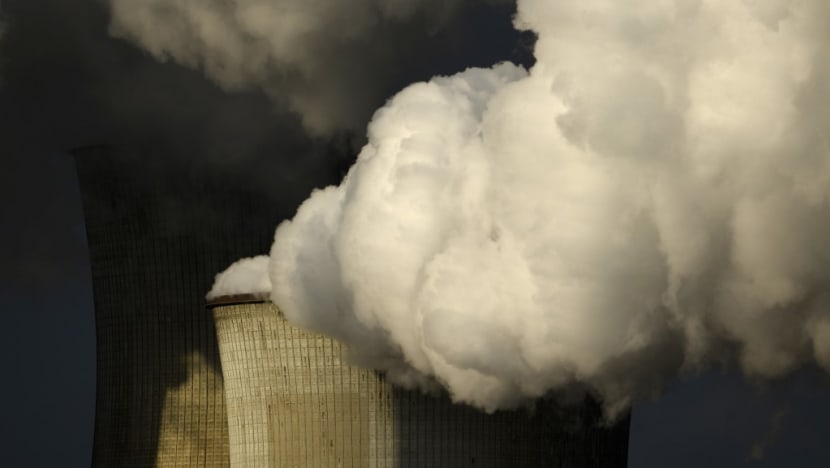
“It was a huge message. During this turmoil, we choose you but you have to show something. They cannot blame the opposition party or political gridlock any longer,” said Sang-young Rhyu, a professor of political economy at the Graduate School of International Studies, Yonsei University.
“The ruling party now possesses an asset allowing them to do whatever they want. The public mass though is so unpredictable and capricious. And there are high expectations,” he said.
While there may be more room to move on a progressive agenda - the electoral victory was the widest by any party under the current democratic constitution - there is also still a lack of a clear roadmap to deliver the Green New Deal.
READ: Commentary - Japan’s new resource strategy to tackle climate change is risky
Prof Rhyu says the dynamic nature of Korean politics means there is no job security for the president, despite his strong mandate.
“If he really has an environmental philosophy, then he just needs to take some measures. We have to move. Not one step has been taken yet. Words don’t matter,” he said.
While he believes President Moon has campaigned strongly on climate issues, he argues that, generally, the policy positions are converging rather than widening between the government and the conservative opposition. It means walking a delicate path with much at stake.
For instance, critics have taken aim at the government for offering emergency bailout funds for industrial power plant operator Doosan Heavy Industries during the pandemic, despite many of its financial problems stemming from well before the crisis.
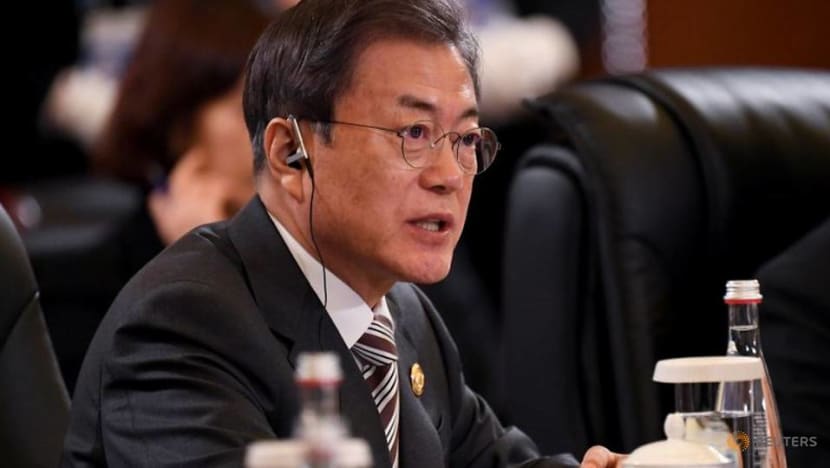
“The room for maneuvering for the president is not so wide. The Korean economy is very sensitive and vulnerable. It relies heavily on the conglomerates. And it’s socially very divided. For President Moon to meet the high expectations, it’s not easy,” he said.
In the meantime, South Korea is starting to feel the impacts of climate change more prevalently. Heatwaves are on the increase, air pollution has worsened and energy use remains nearly double the global average, partly due to systemic inefficiencies.
Having a strong target to mitigate those problems is an important start, Brown says, as it sends a powerful message to industry and markets, and eventually the technology will be available to deliver sweeping efficiencies.
“It seems a bit absurd if you look at these targets but they are always a statement of ambition and there’s a diplomatic process of raising the ambition,” she said.
“The important thing for Korea at this stage is figuring out what they’re going to stop doing and that’s actually where they’re having such a hard time right now.”














